

Burning Out? Give Yourself Permission to Dial It Back. We’ve heard it time and time again that overwork is ineffective to our productivity.
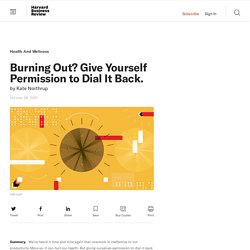
More so, it can hurt our health. But giving ourselves permission to dial it back is difficult. We worry that we’re not meeting the needs of our clients or boss if... You’ve heard the stats on overwork and how huge a health risk it is. You’ve read the productivity articles and books indicating that loading up your week with more work hours doesn’t actually improve your results. We all know people who just can’t apologize — well, here’s why.
Mathilde Aubier Since I started writing the “Dear Guy” column, I’ve received many letters from readers asking why some people in their lives just seem unable to apologize — even when they’re clearly in the wrong.
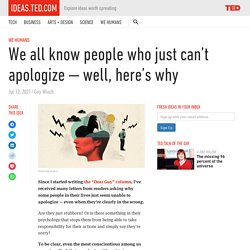
Are they just stubborn? 4 Steps to Boost Psychological Safety at Your Workplace. Health and wellbeing at work. The COVID-19 pandemic has posed a huge threat to people’s health and transformed work on an unprecedented scale.
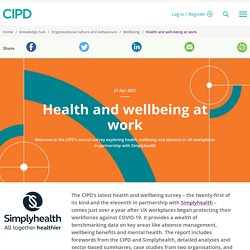
Employers and employees have had to deal with a host of challenges, from sickness and loss to furlough and redundancy. Meanwhile remote working has offered benefits to many, but left other people feeling like they just can’t switch off from work. Bien-être au travail - Mesurez votre leadership. What Psychological Safety Looks Like in a Hybrid Workplace. Sorting out hybrid work arrangements will require managers to rethink and expand one of strongest proven predictors of team effectiveness: psychological safety.
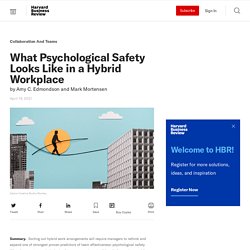
When it comes to psychological safety, managers have traditionally focused on... “Our office policy is that people should come into the office once per week. Now they are organizing a team meeting with 15 people. I guess some people seem to feel comfortable with that, but I’m not; I have a young family at home and we have been very careful.
Gestion du stress. Mental Health at Work & Employee Engagement- Engagement Multiplier. Think of five people you know – maybe the five closest people sitting near you in your office.
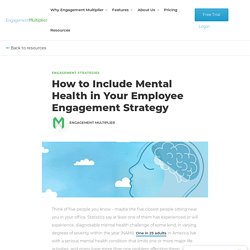
Statistics say at least one of them has experienced or will experience, diagnosable mental health challenge of some kind, in varying degrees of severity, within the year (NAMI). One in 25 adults in America live with a serious mental health condition that limits one or more major life activities, and many have more than one problem affecting them.
As a wise co-worker likes to say, “Everyone has something.” And at some point, everyone does. How to promote good mental health in the workplace. “The idea of promoting good mental health applies to everyone in the workplace, not just the people who are struggling.”
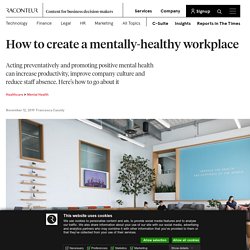
So says mental health campaigner and activist, Rob Stephenson, and it is a point of view which cuts right to the heart of the issue of workplace mental health. “When it comes to workplace wellbeing, budgets usually go towards helping those who are suffering- which is morally the right thing to do - but I think it is just as important to focus on a move towards the thriving end of the mental health continuum.” Indeed, mental health schemes which prioritise prevention can see a much higher return on investment (ROI) than those which only step in once a serious issue has been flagged. Working long and hard? It may do more harm than good. Nearly half of people in the EU work in their free time to meet work demands, and a third often or always work at high speed, according to recent estimates.
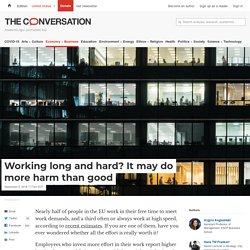
If you are one of them, have you ever wondered whether all the effort is really worth it? Employees who invest more effort in their work report higher levels of stress and fatigue, along with lower job satisfaction.